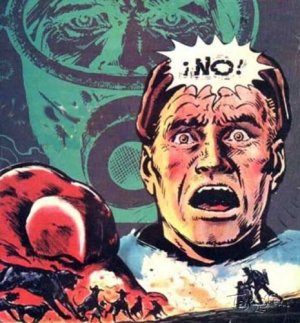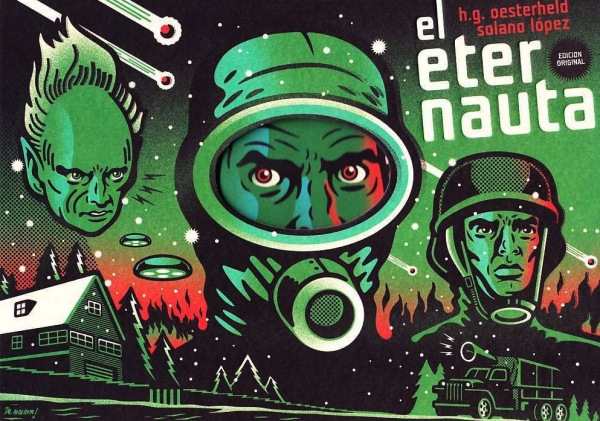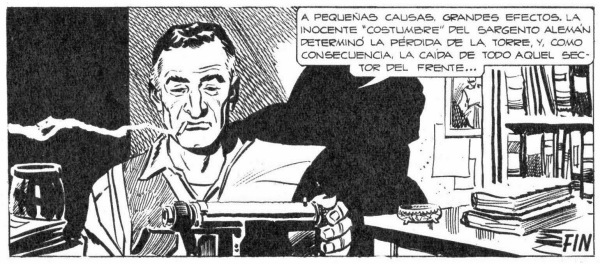HYPERALLERGIC: Buenos Aires-born comics writer Héctor Germán Oesterheld was nearing his 59th birthday when heavily militarized Argentine death squads kidnapped him in the spring of 1977. The fascist dictatorship had produced a “dirty war,” which meant that a military regime had begun silencing leftist sentiment by force. Government officials found the political themes in Oesterheld’s very popular comics — among them, the graphic biography of revolutionary “Che” Guevara that Oesterheld had penned with Argentine father-and-son artists Alberto and Enrique Breccia — cause for punishment. They yanked it out of circulation and destroyed the book’s printing plates.
Oesterheld’s support of an aggressive left-wing guerrilla group called Montoneros in the 1970s — backed by the writer’s four grown daughters — angered members of the violent military campaign that had occupied Argentina’s government. When troops captured all four of the Oesterheld women, the fact that two of them were pregnant mattered little. Other than 19-year-old Beatriz, whose body was later found, none of them were ever seen again. “My life was wonderful, and we were  all very close,” Héctor’s widow, Elsa Sanchez de Oesterheld, told The Washington Post in 2012. “And then they took it all away, all of it.” MORE
all very close,” Héctor’s widow, Elsa Sanchez de Oesterheld, told The Washington Post in 2012. “And then they took it all away, all of it.” MORE
PASTE: In Argentina, the 1930s are known as the “Infamous Decade,” and in those 10 years were defined by a series of political and economic scandals. In 1930, José Félix Benito Uriburu y Uriburu led a successful military coup and usurped the presidential office of Argentina from his democratically elected predecessor, Hipólito Yrigoyen. Uriburu’s successor was democratically elected, though it was later revealed that it was a fraudulent election. The “Infamous Decade” ended with another coup in 1943, and in 1946 when Juan Perón was democratically elected. Unfortunately, Perón was deposed via coup in 1955. His successor banned the left-wing political ideology named for Perón, Peronism, though a Peronist would be elected in 1963 only to be overthrown by—what else?—a coup. A military dictatorship via junta would persist until 1973, though the post-1973 governments persisted in what has become known as the “Dirty War,” a period marked by state-sponsored terrorism directed at left-wing revolutionaries.
For most of Oesterheld’s life, right-wing militancy had a powerful role in the direction of his country, and that body helped shape the history of the country’s culture. A contemporary of Oesterheld’s, Jorge Luis Borges produced work that was similarly imbued with subversive political ideologies, though he sided with the junta more times than his fans would like. Unfortunately, this brief history is remarkably similar to a number of other Latin American countries, and many places spent more of the 20th century governed by a general than by a president. These juntas were in direct conflict with the left-wing ideals that Oesterheld struggled—physically, violently struggled—to uphold, and it was these ideals that would eventually lead to his disappearance. The Argentine government never denied removing the writer, and when Alberto Ongaro, an Italian writer who would continue The Eternaut in 1983, asked the government about Oesterheld, he was apocryphally told, “We did away with him because he wrote the most beautiful story of Ché Guevara ever done. MORE


